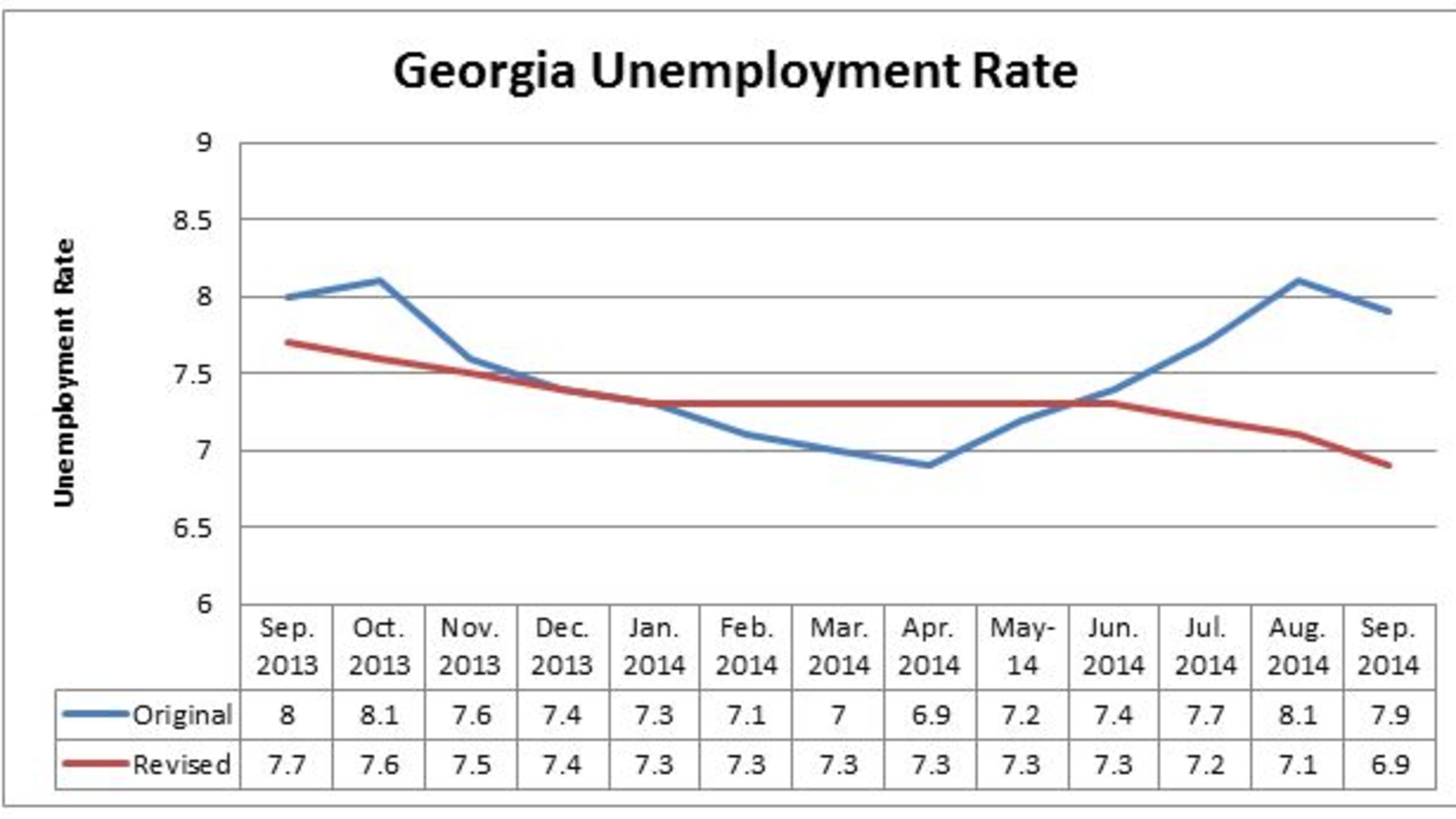Hey, remember back when Georgia's unemployment rate looked bad?

As you may recall, Georgia's gubernatorial election last year got real close in the opinion polls during the late summer, in large part because of a sudden, inexplicable spike in the state's unemployment rate. Economists were practically unanimous in their inability to explain why the jobless rate was going in the wrong way while so many other economic indicators were moving in the right direction . Yet Democrat Jason Carter's campaign and supporters seized on that one figure as evidence Georgia's economy wasn't as good as Gov. Nathan Deal said it was.
One of the things noted at the time was that unemployment figures for the whole year would be eventually revised, and probably downward to a great extent, but not until 2015. Well, those revisions are out, and here's the picture they paint when compared with the numbers at hand prior to the election:
The above chart stops at September 2014 because that was the last jobless report that came out before the election, and it goes back one full year before that. In each of the last two reports before the election, the rate was a full percentage point higher than it was after the revision.
Now, this does not mean the books were cooked. Going back three years from the report for September 2014, there were a couple of months that were off by 0.8 percentage points, so a large disparity isn't unheard of. It is, however, pretty rare: On average during those three years, the original number was 0.1 points higher than the eventual, revised number for that month. Here's a graph for that whole three-year period, plus the end of 2014:
The take-away message is fairly simple. The jobless rate is a rather volatile and even unreliable indicator that ends up looking much smoother once additional information allows for a fuller picture. When all the other economic data suggest the economy is doing fine, a sudden, short-term bump in the jobless rate doesn't mean the economy isn't fine. It probably doesn't even mean the job market isn't fine. Beware politicians and other interested parties who would tell you otherwise.
More Stories
The Latest


